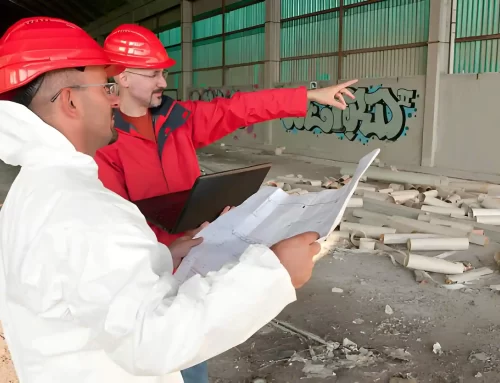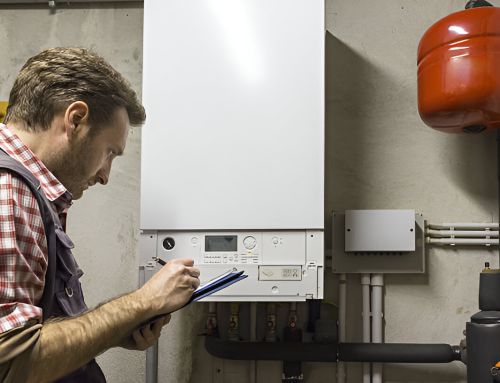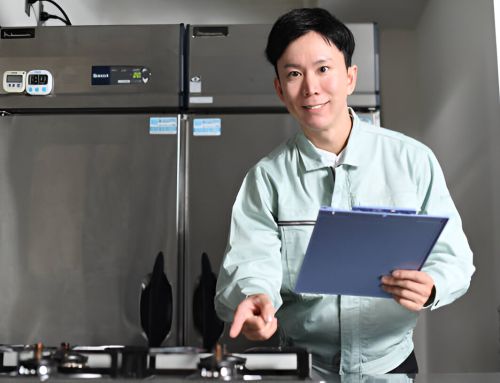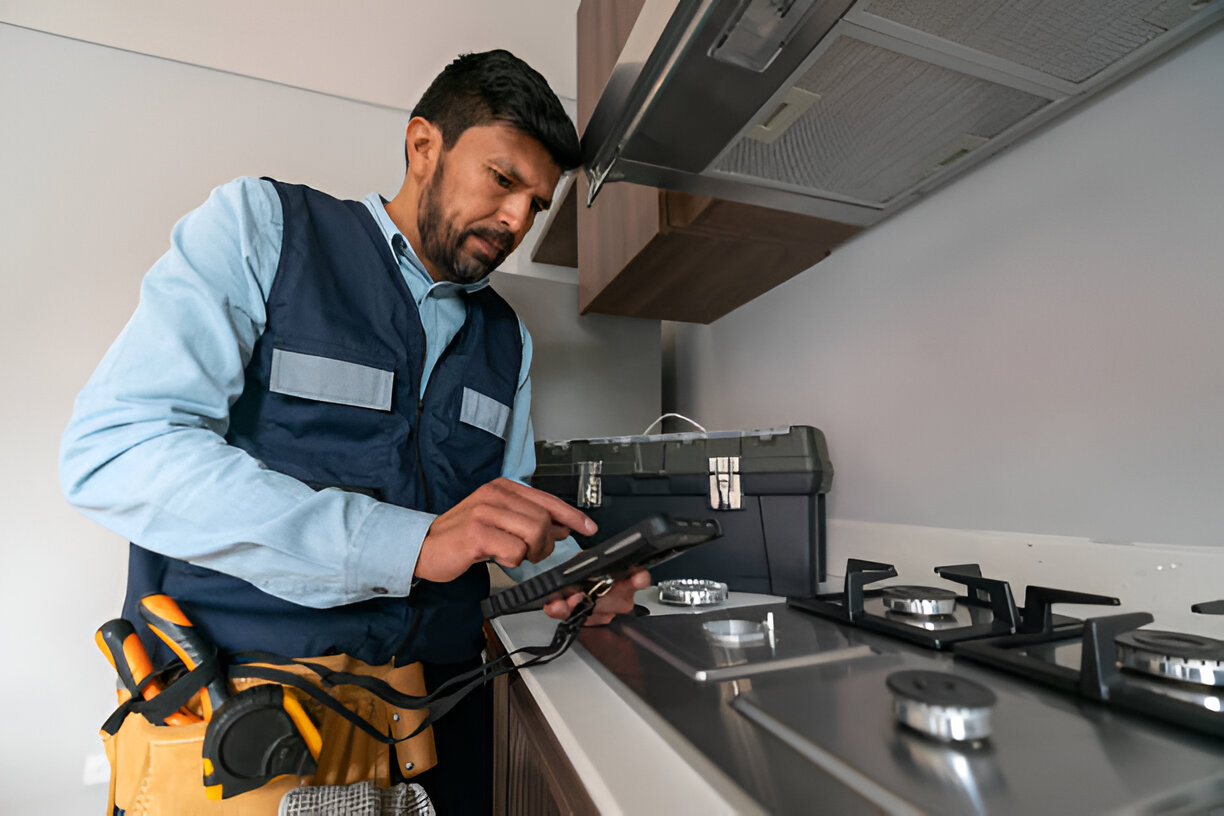
Commercial Gas Safety Certificate London is vital for businesses relying on gas appliances. It ensures compliance with safety regulations and protects against potential hazards. This certificate serves as a safeguard for both employees and customers. Understanding the requirements and processes involved in obtaining this certification is essential for business owners. What specific steps must be taken to secure this important document? The answers may surprise you.
Key Takeaways
- A Landlord Gas Safety Certificate is essential for compliance and safety of gas appliances in businesses across London.
- Only Gas Safe-registered engineers can conduct inspections and issue the certificate, ensuring safe gas work practices.
- Regular inspections and maintenance are mandated to prevent hazards and ensure operational efficiency in commercial properties.
- Documentation of previous inspections, maintenance schedules, and service histories is crucial for compliance and future inspections.
- Non-compliance can result in significant penalties, making the certificate vital for legal protection and peace of mind.
What Is a Commercial Gas Safety Certificate London and Why Do You Need It?
A Commercial Gas Safety Certificate London serves as a crucial document that verifies the safety and compliance of gas appliances and installations within commercial properties.
This certificate is essential for ensuring that gas systems operate safely, preventing potential hazards such as leaks, fires, or explosions. It confirms that all equipment has been inspected and tested by a qualified gas engineer, adhering to the regulations set forth by the Gas Safety (Installation and Use) Regulations 1998.
Having this certificate not only protects the health and safety of employees and customers but also reinforces a business’s commitment to maintaining a safe environment.
Additionally, it plays a vital role in legal compliance, as businesses can face significant penalties for failing to obtain or renew their certificate.
Who Needs a Commercial Gas Safety Certificate London?
Who exactly requires a Commercial Gas Safety Certificate London?
This certificate is essential for any business that utilises gas appliances, including restaurants, cafes, hotels, and other commercial establishments. It is particularly important for those who operate kitchens, heating systems, or any type of gas-fueled equipment.
Landlords of commercial properties are also obligated to obtain this certification to ensure the safety of their tenants.
Additionally, businesses that serve the public, such as retail stores with gas heating, must comply with regulations to protect customers and staff alike.
Regular inspections and maintenance are necessary to maintain the certificate, reinforcing the importance of ongoing safety measures.
Failure to secure a Commercial Gas Safety Certificate can result in legal repercussions and endanger lives, making it crucial for businesses to prioritise this certification as part of their operational responsibilities.
Legal Duties for Obtaining a Commercial Gas Safety Certificate London
In London, businesses with gas appliances must navigate specific legal responsibilities to obtain a Commercial Gas Safety Certificate.
The Health and Safety at Work Act 1974 mandates that employers ensure the safety of their employees and others who may be affected by their activities. This includes ensuring that gas appliances are regularly maintained and inspected.
Additionally, the Gas Safety (Installation and Use) Regulations 1998 require that any work on gas appliances be conducted by a registered Gas Safe engineer.
Businesses must keep detailed records of all safety checks and maintenance performed on their gas systems.
Furthermore, failure to comply with these legal requirements can result in significant penalties, including fines or legal action.
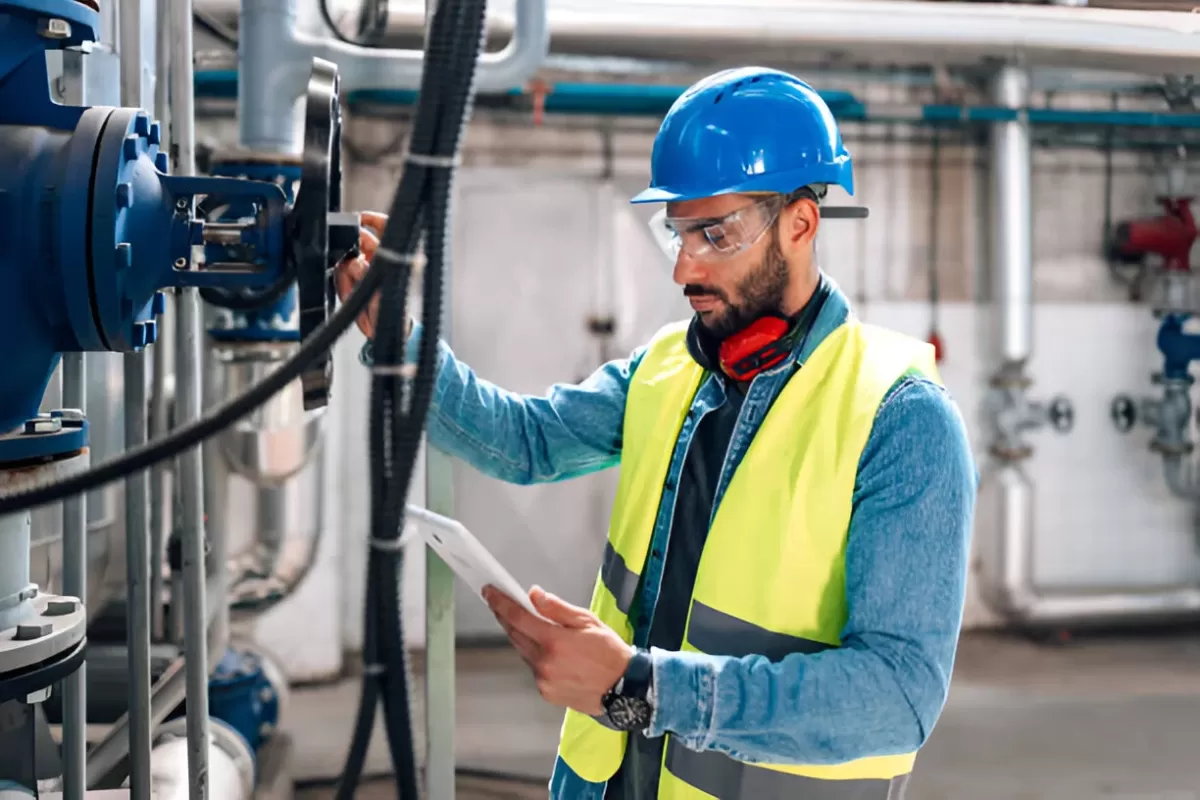
The Process of Getting a Commercial Gas Safety Certificate London Explained
Obtaining a Commercial Gas Safety Certificate London involves a systematic process that ensures compliance with safety regulations.
Initially, businesses must schedule an inspection by a Gas Safe-registered engineer, who is qualified to carry out the necessary checks. During the inspection, the engineer examines all gas appliances, pipework, and ventilation systems to verify their safety and efficiency.
Next, any identified issues must be addressed to meet regulatory standards. Once the inspection is complete and compliance verified, the engineer issues the Commercial Gas Safety Certificate. This certificate is typically valid for 12 months and must be renewed annually through a similar inspection process.
Businesses are also required to keep records of these inspections and any remedial actions taken. This not only aids in maintaining safety but also serves as proof of compliance with legal obligations, protecting both employees and customers alike.
Common Issues Found During Commercial Gas Safety Certificate London Inspections
During inspections for a Commercial Gas Safety Certificate London, several common issues often arise that may jeopardise safety and compliance.
One prevalent concern is inadequate ventilation, which can lead to dangerous carbon monoxide buildup. Inspectors frequently find gas appliances that are poorly maintained, resulting in inefficiencies and potential hazards.
Additionally, faulty gas connections or outdated pipework can pose significant risks, as leaks may occur without proper detection.
Another common issue is the absence of necessary safety devices, such as gas shut-off valves and pressure regulators, which are crucial for preventing gas-related emergencies.
Furthermore, inspectors may identify non-compliance with installation standards, particularly regarding the positioning of appliances.
These findings not only impact the safety of the premises but can also lead to legal repercussions for businesses.
Addressing these issues promptly is essential for ensuring compliance and safeguarding both employees and customers.
Cost of a Commercial Gas Safety Certificate London in 2025
The cost of a Commercial Gas Safety Certificate London for 2025 is expected to reflect a range of factors, including inflation, regulatory changes, and the complexity of the inspection required.
Businesses should anticipate that prices may rise due to increased operational costs for gas safety engineers and evolving compliance requirements.
Typically, the cost can vary based on the size of the commercial property and the number of appliances needing inspection. A straightforward inspection for a small café may differ significantly in price from that of a large restaurant or industrial facility with multiple gas systems.
Furthermore, businesses might encounter additional fees for necessary repairs or maintenance identified during the inspection.
Understanding these variables will help business owners budget effectively for obtaining and maintaining their Commercial Gas Safety Certificate, ensuring compliance with safety regulations while safeguarding their operations and customers.
Why Landlords Must Secure a Commercial Gas Safety Certificate London
Securing a Commercial Gas Safety Certificate is a fundamental responsibility for landlords in London, particularly in light of the rising costs and regulatory demands associated with gas safety compliance.
This certificate serves as a formal assurance that gas appliances and installations within commercial properties are safe and properly maintained. Failure to obtain this certification can lead to severe consequences, including hefty fines, legal action, and potential harm to tenants and employees due to unsafe gas practices.
Moreover, landlords have a legal obligation under the Gas Safety (Installation and Use) Regulations to ensure the safety of their gas systems.
Regular inspections and obtaining the certificate not only protect the health and safety of individuals but also enhance the landlord’s reputation and trustworthiness in the market.
Thus, securing a Commercial Gas Safety Certificate is not only a legal requirement but also a critical aspect of responsible property management in London.
Preparing Your Property for a Commercial Gas Safety Certificate London Inspection
Preparing a property for a Commercial Gas Safety Certificate London inspection requires careful attention to detail and proactive measures. Ensuring that all gas appliances and systems are in optimal working condition is crucial for compliance and safety.
Business owners should take the following steps to facilitate a smooth inspection:
- Conduct a thorough inspection of all gas appliances: Check for any signs of wear or damage that could affect performance.
- Ensure proper ventilation: Adequate airflow is necessary to prevent hazardous gas buildup, so verify that ventilation systems are functioning correctly.
- Compile relevant documentation: Gather records of previous inspections, maintenance schedules, and service histories to present to the inspector.
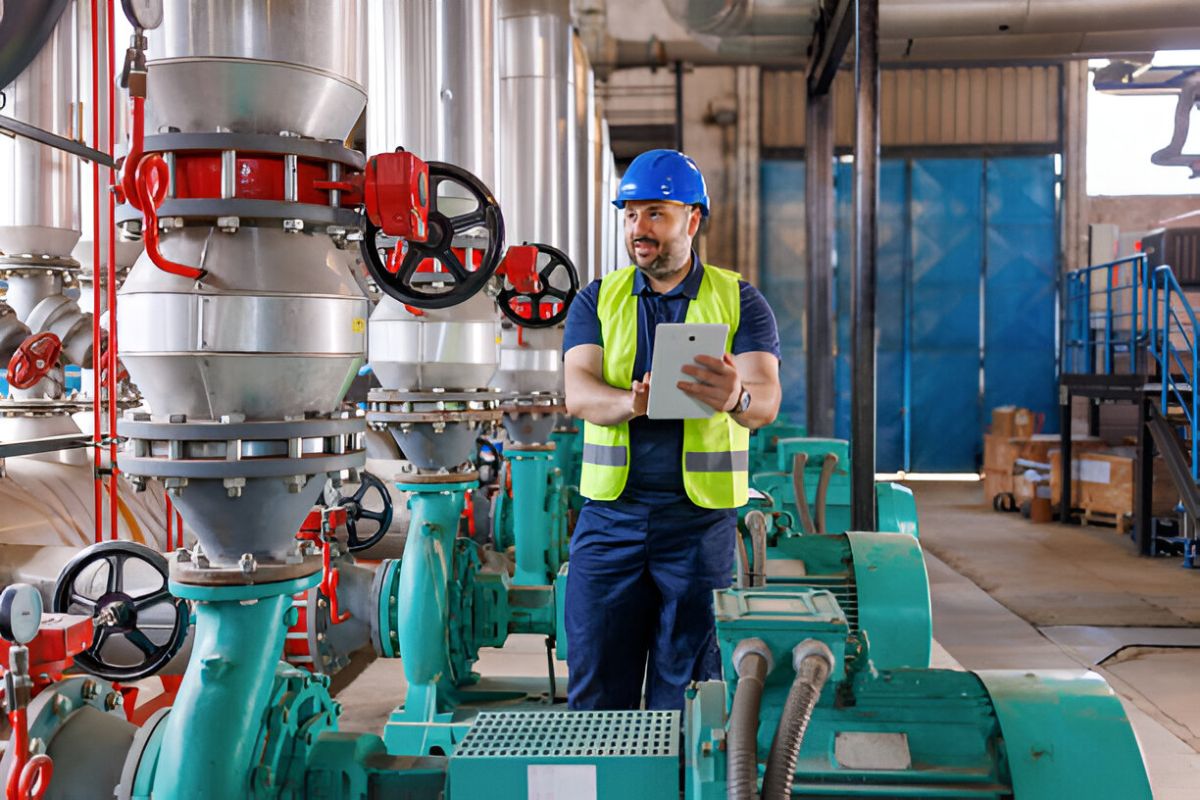
Who Can Issue a Commercial Gas Safety Certificate London?
Qualified gas safety professionals are essential for issuing a Commercial Gas Safety Certificate London. These individuals must be registered with the Gas Safe Register, which is a legal requirement in the UK. This register ensures that only competent and qualified engineers can carry out gas work safely and legally.
To obtain a Commercial Gas Safety Certificate, businesses should seek professionals who possess the necessary qualifications, experience, and expertise related to commercial gas systems. These experts conduct thorough inspections, testing, and maintenance of gas appliances and installations to ensure they meet safety standards.
It is crucial for business owners to verify the credentials of any gas engineer they engage. This includes checking their Gas Safe registration number and ensuring they have relevant qualifications specific to the type of gas work required.
Frequently Asked Questions
A commercial gas safety certificate should be renewed annually. Regular inspections ensure compliance with safety standards, protect occupants, and minimize risks associated with gas appliances. Businesses must prioritize timely renewals for ongoing operational safety and legal adherence.
Failure to obtain a commercial gas safety certificate can result in severe penalties, including hefty fines, legal action, and potential imprisonment. Additionally, businesses may face increased insurance premiums and reputational damage from non-compliance.
Conducting the inspection oneself is not advisable. Only qualified gas engineers, registered with the relevant authorities, can perform these inspections to ensure compliance with safety regulations, thus safeguarding both property and individuals from potential hazards.
Certain businesses may be exempt from holding a Commercial Gas Safety Certificate, particularly in specific circumstances. However, these exemptions are limited and depend on factors such as gas usage and equipment types, necessitating professional guidance for clarity.
A commercial gas safety certificate typically lasts for 12 months. Businesses are required to renew the certificate annually to ensure ongoing compliance with safety regulations and to guarantee the safe operation of gas appliances.
Conclusion
In conclusion, obtaining a Commercial Gas Safety Certificate London is essential for businesses to ensure safety, compliance, and peace of mind. Regular inspections not only help prevent hazards but also shield companies from potential liabilities. By understanding the legal requirements and the certification process, businesses can be proactive in maintaining their gas appliances and safeguarding their premises. Ultimately, securing this certificate reflects a commitment to the well-being of employees and customers alike.
About the Author: Atia Amin
Related Posts
Get Social
Recent Posts
- Electrical Diagnostic London: How Professional Testing Keeps Your Property Safe and Compliant
- Asbestos Management Survey London: Update Your Property Records
- Gas Safety Certificate London: Why Regular Checks Save Money Long-Term
- FRA London Explained: How a Professional Fire Risk Assessment Keeps You Compliant and Safe
- When a New Tenancy Requires Your EICR Certificate London Renewal


